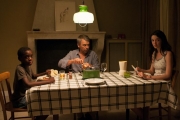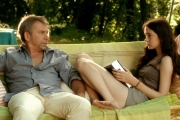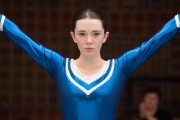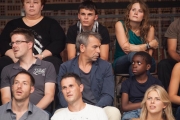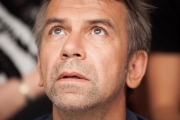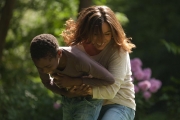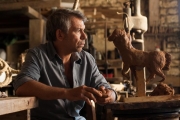Synopsis
Married for several years, Paula and André share a happy life with their two children in a small village in the countryside. But one morning, this peaceful life is turned upside down by the disappearance of Paula. In her farewell letter, she wrote these few words to explain her departure:
“I wished I would never leave, but it is decided. I need to do this, otherwise I will die.”
During that summer, André and the children will find each in his / her own way a remedy to deal with the pain of her absence and will set out on a quest for appeasement.
Credits
Director: Nicolas Birkenstock
Screenplay: Carl Lionnet, Nicolas Birkenstock
Producer: Juliette Sol
Cast
Philippe Torreton • Lola Dueñas
Armande Boulanger • Élie-Lucas Moussoko
Schedule & Presentation
![]() Presentation by and discussion with director and screenwriter Nicolas Birkenstock
Presentation by and discussion with director and screenwriter Nicolas Birkenstock
More information
Choose a picture to see the filmography (source : IMDB)
![]()
From your early short films, you have been following the same themes: family, absence, transmission, feeling of emptiness, guilt, responsibility… Where did you get that interest?
Maybe these are the things that move me in films… For example I am really sensitive to the work of the film directors who know how to direct children. Especially Luigi Comencini’s film Misunderstood (1966) is one of the most beautiful things I have ever seen. I also identify with Claude Miller’s films. I take a closer look at childhood in general than at my own childhood.
Absent mothers are of great importance in your films…
Family was for me the major issue in La Pièce manquante. What constitutes or not a family? Is a family without a mother still a family? We also wanted to show a father who isolates himself to form a compact and united world with his children, while the latter are attracted to the outside world.
The atmosphere of the film is really peaceful. What choices did you make in the way you shot the film?
Through music and image, we wanted to create something really bright and cocoon-like, as if outside elements could not affect the story. This film mostly relies on the actors, so the organization had to be the least restrictive possible and to give them some space, by leaving some sequences open and shooting in continuity. It was really important for the children, and I think also for Philippe.
When you wrote the character of André, were you thinking about Philippe Torreton?
I had often seen him in really strong and assertive roles, and less playing vulnerable characters. I wanted to portray him as a father and to confront him with almost non-professional actors. I felt him at ease with children. Besides, my theatrical training often pushes me to go to actors who come from that field, because for them the text is the point of departure.




